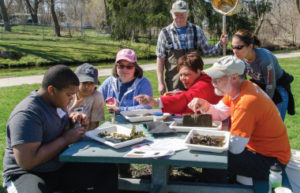
HRWC strives to cultivate a safe and welcoming atmosphere for all our volunteers who help out in our offices and the field. HRWC acknowledges the possible risks and challenges associated with fieldwork and has developed procedures to minimize these risks. In an effort to ensure utmost preparedness and safe volunteer outings, HRWC asks new volunteers to review the safety information below. If you have any reservations or concerns about participating in our fieldwork, let us know and we will be happy to work with you to make sure you feel comfortable and safe during your field experience.



